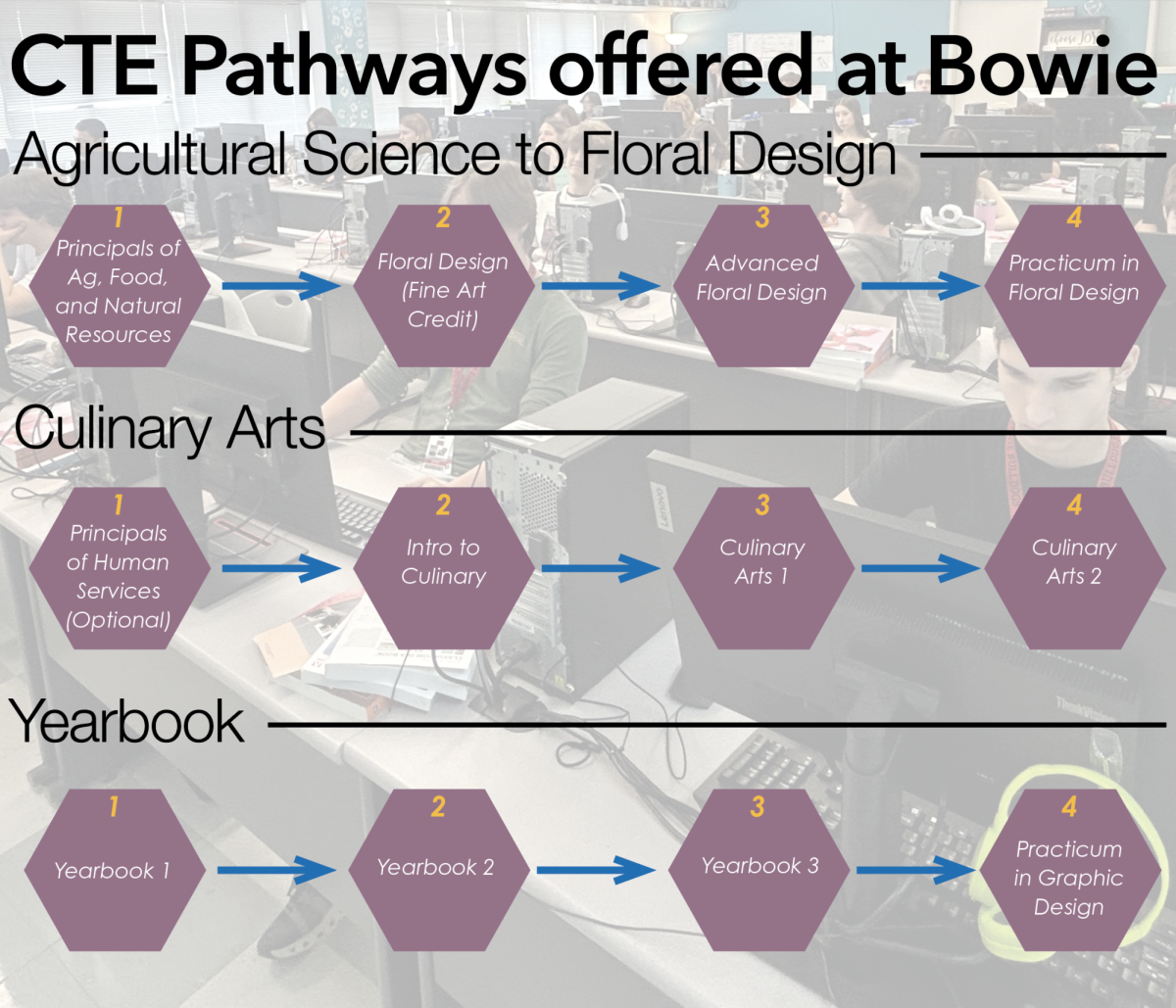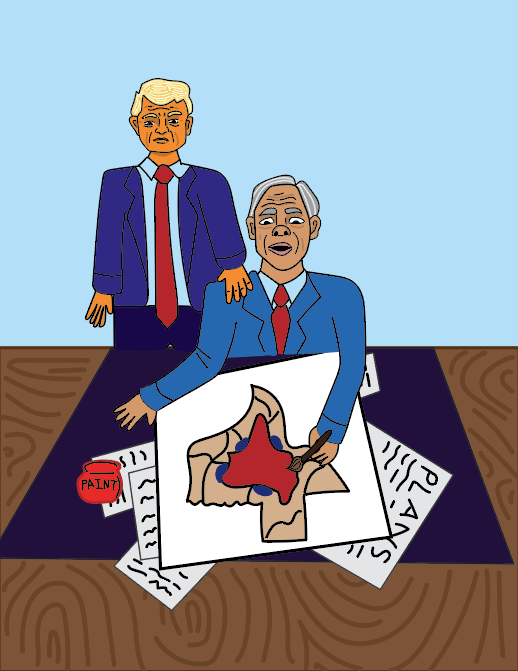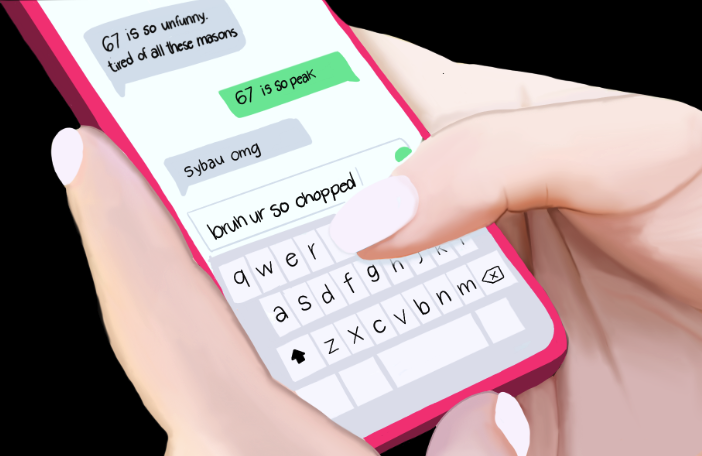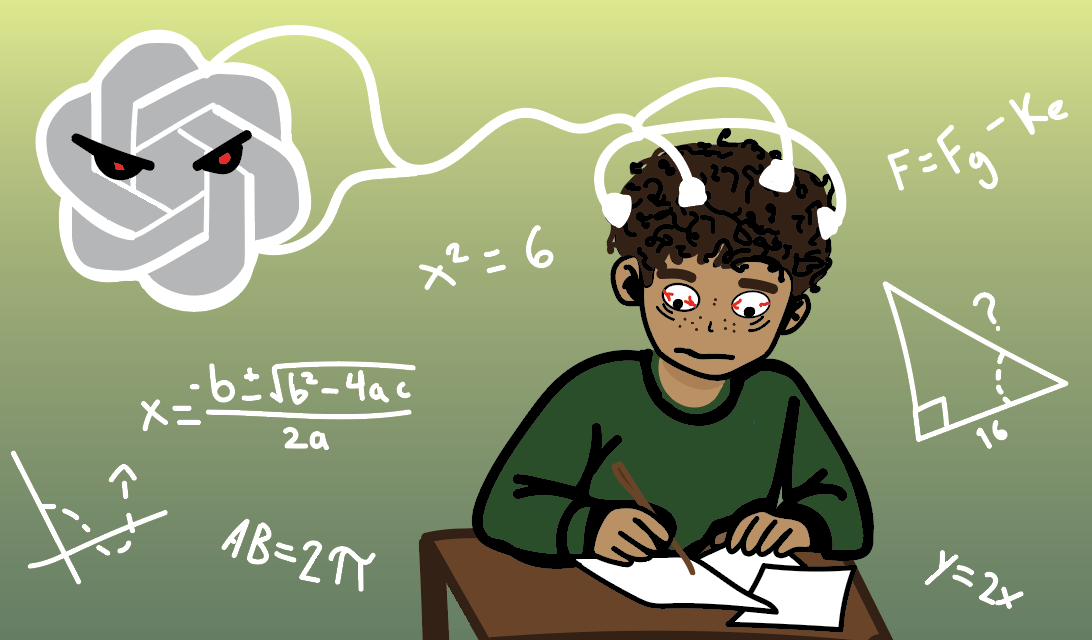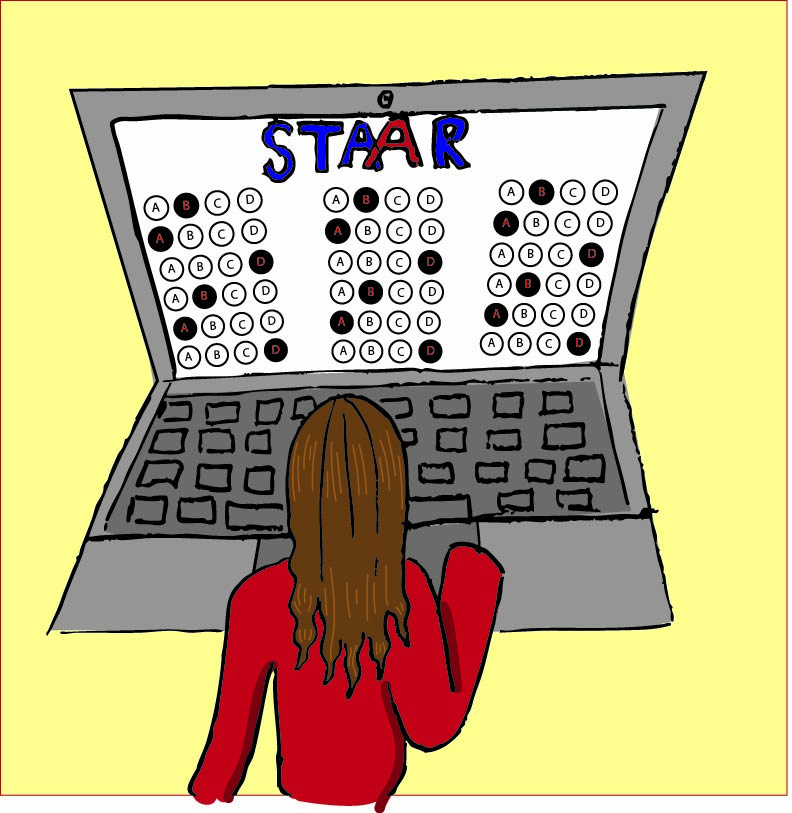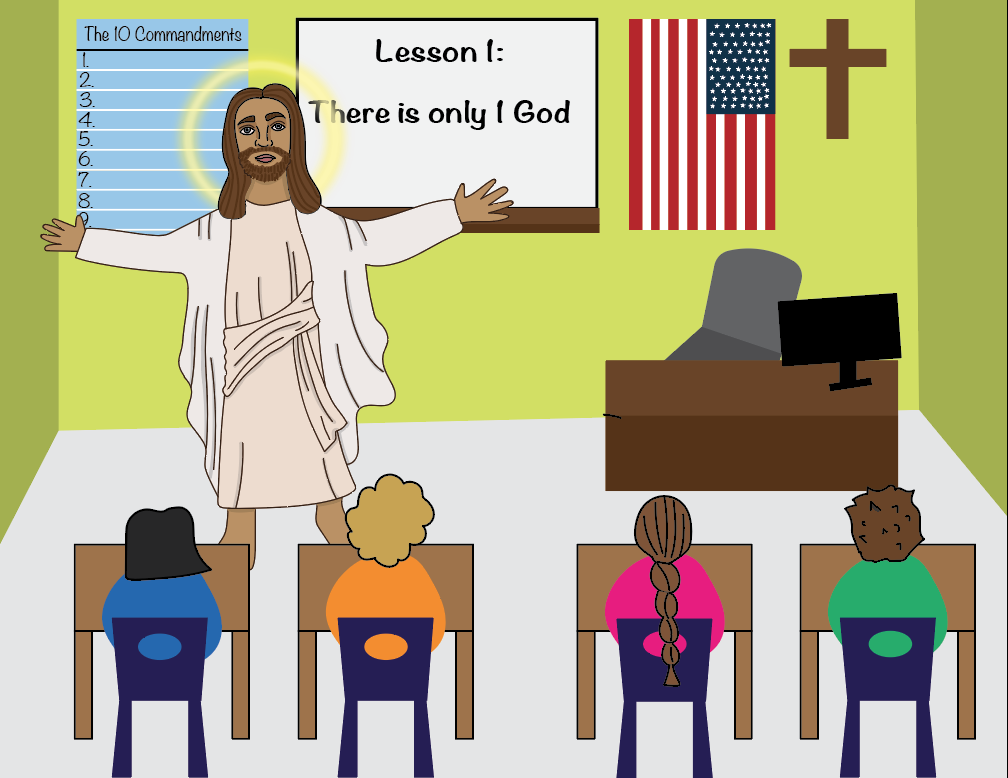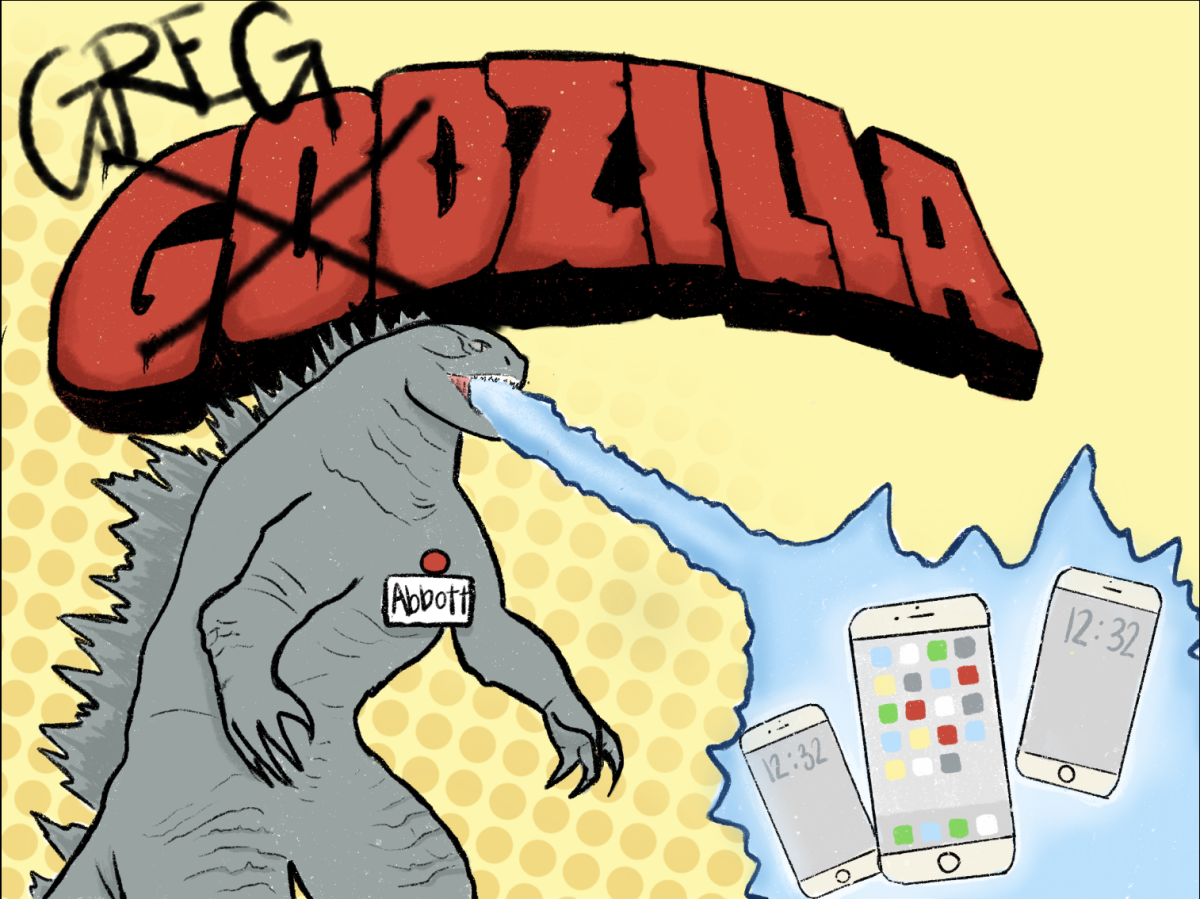As the spring semester rolls around each year, future Bowie freshmen are visited by counselors to talk about the possible courses they could sign up for. The counselors present the students with an overwhelming abundance of elective pathways they get to start their freshmen year and complete when they eventually become seniors. They heavily advocate that these students should start the pathway now so they can complete all four classes within the track.
At first, it seems that these pathways are being promoted as a great opportunity, but the more you explore it, the more it seems like a necessity where students have to choose a career path freshman year and then continue to pursue it into their early adult life. Bowie staff puts too much pressure on completing an elective pathway which then puts unnecessary stress on students.
Because elective paths are so rigid, it can make students scared to grow as a person and find their true interests because they feel the need to stick with the course path they chose. Students’ passions and career goals often change from the time they’re in eighth grade to when they graduate high school. They may be inclined to switch elective paths during their high school career but won’t because they feel they are already committed to another path.
This decision can lead to them feeling unfulfilled with their career choice down the road. According to a survey done by district administration, 42% of students don’t feel great confidence in their career choice. If teenagers don’t feel like they are allowed to explore interests that strike them after eighth grade, they aren’t going to be happy with their high school experience or their choice of major or career as a whole.
Bowie faculty’s goal is to make students college, career, and military ready, so students are pressured to find a career path as quickly as possible. It scares students into believing that they cannot be successful in life if they don’t stick to one elective track for all four years of high school.
Making a large commitment so early in life is extremely unrealistic and overwhelming for many students. According to the Washington Post, only 27% of people have a job that is related to their college major. Since most adults have jobs that aren’t related to their major, it would be expected that teens would be taught that a career path does not predict their entire future, but Bowie is in fact preaching the complete opposite.
The idea that teenagers can happily stick with the same career path they chose at fourteen years old until they secure a job in the workforce is entirely unreasonable.
Many courses, like graphic design and health science offer certifications that show that a student is qualified since they’ve completed all four classes within the path. This can be put on their applications and resumes and it shows that they have some experience within the field.
While these are great opportunities for students, the persistent pressure put on them makes it seem like this opportunity is more important than anything else. Students who are inspired to join the career path during their later years in high school might not receive their certification and may be discouraged from continuing because they feel they are already behind and can’t catch up with their peers.
Parents can sense the pressure their student is being put under and use it to their advantage. Parents may use the pressure their kid feels to keep them on the elective track that they think is best for them. Parents and school’s pressure to find a respectable career quickly kills students’ ambitions to have new experiences and explore new interests.
Many believe that getting to the practicum level is an amazing opportunity for students because it gives them early experience in a specific field. Because of this, they think that advertising this opportunity to incoming freshmen is insanely important. While making these paths known to students is important, schools are going about it all wrong. It’s advertised as more of a necessity than an opportunity. In reality, students can have an incredibly successful high school experience without completing any career pathways.
Overall, schools need to find a better way to promote elective paths to students. High school is about finding something that we’re passionate about enough to make a career or hobby out of it. Students shouldn’t be expected to already know their true calling when they first walk through the campus doors.
Choosing an elective track shouldn’t dictate a student’s high school experience or career, and teenagers should feel comfortable finding their true interests without feeling the crushing weight of their future career already on their shoulders.



